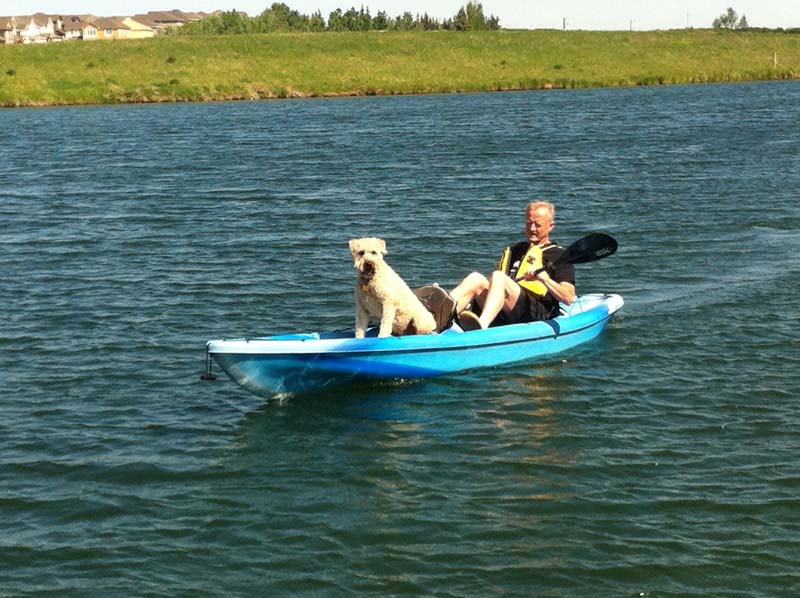
Considering we live in a place that can sometimes get brutally blasted with nasty winters, summer time is our reward for surviving those large snow dumps and bitter cold temps. As humans, we know if we get to hot that we should get hydrated and if we’re out enjoying the sun to wear sun screen. But our pets, who rely on us as owners to take care of them, don’t have the capability or the voice to let us know when they are getting to hot or if something is wrong.
Dr. Gabby at Chestermere Veterinary Clinic has provided us with some great tips on how to keep our pets safe this summer:
Prevention is the key!
– Prevent sunburn: just like people, pets can get sunburned and skin cancer so use sunscreen designed for the face and apply on exposed skin areas like nose, around the lips and tip of the ears. Light colored fur and skin pets are more at risk.
– Prevent fleas and tick bites, prevent heartworms: ticks will transmit several infectious diseases like Lyme, Anaplasmosis, Erlichiosis and Spotted Mountain Rocky Fever. Fleas can cause anemia. Heartworms are transmitted by mosquitoes and can cause coughing, other breathing and circulatory problems, even death. It only takes one mosquito bite for a dog to become infected. Use a monthly preventative medication to help protect your pet from these serious diseases.
– Prevent dehydration: it is best to have fresh clean water available and not allow your pets to drink from ponds or puddles on the street or yard (contamination can occur in these waters and will make your pet sick). Learn to recognize signs of dehydration in your pets: the gums of the mouth feeling tacky to touch and/or the skin may become slow to return to its natural position when pulled up. This can lead to lethargy and sunken eyes. Sometime intravenous fluids are necessary to correct severe dehydration.
– Prevent heat exhaustion and overheating: walk your pet early in the morning or later in the evening when it is cooler outside. NEVER leave your pet in the car, temperatures inside the car could reach 120 degrees Fahrenheit even in a few minutes. Remember their paws: if we cannot walk barefoot on the sidewalks, they should not be either! Try to find shaded areas for your walks. Rest them often and find dry, shaded areas for them to lay down. If you suspect heat stroke in your dog, take him to the closest emergency clinic right away. Heat stroke signs: extreme panting, salivation, vomiting, diarrhea, staggering.
– Prevent motion sickness while travelling in an RV: talk to your veterinarian for products that prevent motion sickness and anxiety.
– Prevent water accidents: always have a life jacket for your pet and keep pets in the cabin or tied up on a lead so that they cannot jump in the water while the boat is moving.
– Prevent accidents from happening in the dark: use a reflective collar and leash, a flashlight or a light on their collar.
– Wasps or bee stings could cause hives, swelling, itchiness, vomiting and diarrhea.
– Keep your pets away from leftover picnic food in the yard: corncobs are very dangerous, they can cause obstructions. The same is true for bones.
We are a community that loves our pets and love to include them in most of our day to day activities. So weather your taking your dog with you camping, just out for a walk or down to the lake, remember the important tips from Dr. Gabby so that you and your pets can have a safe and awesome summer!








